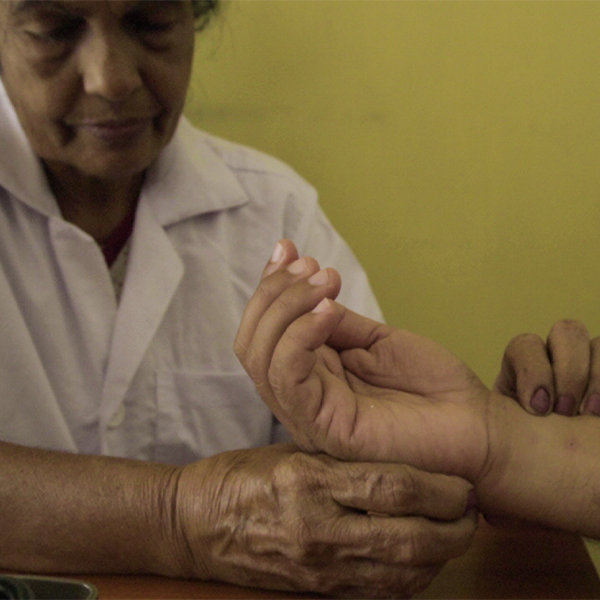Carpal Tunnel Syndrome (CTS)
Suggested Treatment Package
Carpal Tunnel Syndrome (CTS) is a common condition that causes pain, numbness, and tingling in the hand and fingers. It occurs when the median nerve, which runs through the wrist, becomes compressed due to swelling or repetitive strain. This can lead to weakness in grip strength and difficulty performing daily tasks. Without timely intervention, symptoms can worsen, affecting both work efficiency and quality of life. Fortunately, natural healing methods can provide long-lasting relief without the need for surgery.

Causes of Carpal Tunnel Syndrome (CTS)
Carpal Tunnel Syndrome is primarily caused by repetitive hand movements, such as prolonged typing, using tools, or playing musical instruments. Other contributing factors include wrist injuries, arthritis, diabetes, and hormonal imbalances. Poor wrist posture, excessive strain, and fluid retention can lead to swelling and pressure on the median nerve. In some cases, underlying health conditions like thyroid disorders or rheumatoid arthritis can also contribute. Identifying the cause early is key to preventing long-term nerve damage.
In conventional medicine, Carpal Tunnel Syndrome is primarily attributed to nerve compression due to repetitive movements, inflammation, or underlying health conditions such as arthritis and diabetes. The swelling within the wrist tunnel restricts the median nerve, leading to symptoms like tingling, numbness, and weakness. Factors like prolonged use of keyboards, mobile phones, or repetitive manual work increase the risk.
From an Ayurvedic perspective, CTS is linked to an imbalance in Vata and Kapha doshas. Excess Vata (air element) causes dryness and nerve irritation, leading to pain and stiffness, while Kapha (earth and water element) contributes to swelling and fluid retention, worsening the compression. Ayurvedic texts associate this condition with blocked energy flow and toxin accumulation (Ama) in the wrist, which hinders normal nerve function. Poor digestion, improper diet, and lifestyle habits can further aggravate the imbalance.
In acupuncture and traditional Chinese medicine (TCM), Carpal Tunnel Syndrome is seen as a result of Qi (energy) stagnation and blood flow obstruction in the wrist meridians. Factors such as cold exposure, repetitive stress, and internal organ imbalances can contribute to nerve compression and inflammation. Blockages in the Lung, Pericardium, and Large Intestine meridians, which run through the wrist, lead to pain and restricted movement. Acupuncturists aim to restore Qi flow, reduce inflammation, and relieve nerve compression naturally.
Cure from Carpal Tunnel Syndrome (CTS)
In conventional medicine, treatment includes pain relief medications, wrist splints, physical therapy, and corticosteroid injections to reduce inflammation. In severe cases, carpal tunnel release surgery is performed to relieve pressure on the nerve.
Ayurveda offers a holistic approach through therapeutic massages, herbal oil applications, and detoxification therapies. Specific treatments like Abhyanga (oil massage), Swedana (herbal steam therapy), and Vasti (medicated enema therapy) help reduce inflammation and restore nerve function. Herbs like Ashwagandha, Shallaki, and Guggulu provide natural pain relief.
In acupuncture, fine needles are inserted at specific energy points to enhance blood circulation, reduce swelling, and restore nerve function. Techniques like moxibustion (heat therapy), cupping, and electro-acupuncture accelerate healing. A combination of these approaches provides a natural, long-lasting cure without surgery.
Holistic healing – TARA Ayurveda and acupuncture combine treatments
Combining Ayurveda and acupuncture provides a powerful, natural solution for Carpal Tunnel Syndrome. While Ayurveda works on reducing inflammation, detoxifying the body, and strengthening the nervous system, acupuncture restores energy flow, relieves pain, and enhances nerve function. Together, these therapies offer faster recovery, long-term relief, and improved hand mobility. Unlike conventional treatments that often rely on painkillers or surgery, this integrative approach addresses the root cause, ensuring lasting wellness. Many patients experience significant symptom reduction within a few sessions, making this combination a safe and effective alternative for those seeking natural healing.

